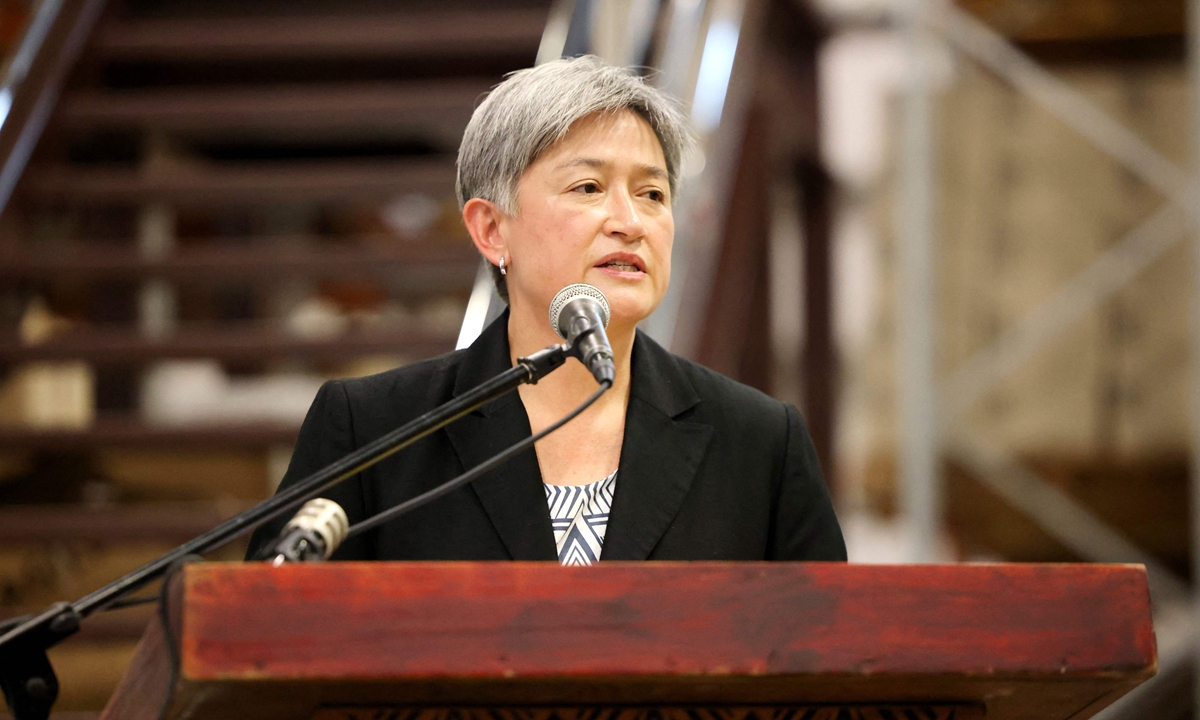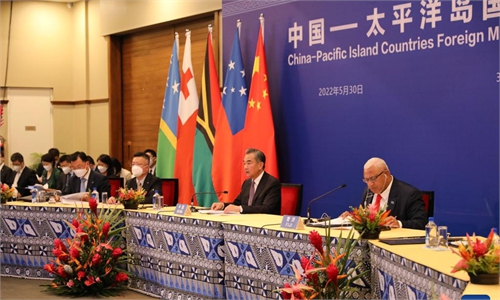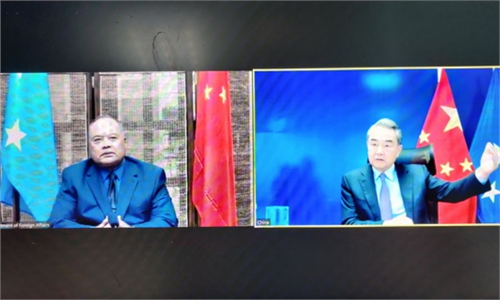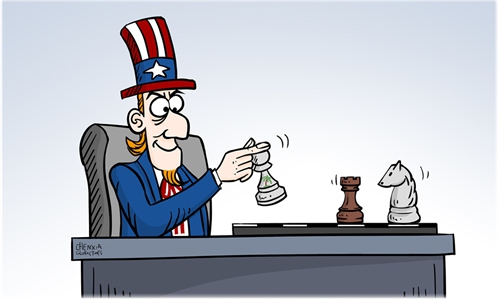Aussie FM's frequent visit to S.Pacific nations 'charm offensive' to exclude China from region

Australian Minister for Foreign Affairs Penny Wong Photo: VCG
The new Australia government recently launched what Chinese observers called a "charm offensive" and "salami tactics" trying to exclude China from this region, as Australia's foreign minister is scheduled to travel to the Solomon Islands on Friday, the third visit to the South Pacific region, in less than a month after she took office.
Australian Foreign Minister Penny Wong said in a news release that she would travel to the Solomon Islands and New Zealand. Australia was committed to deepening cooperation with the Solomon Islands on shared challenges including climate change, and Wong would meet with Solomon Islands Prime Minister Manasseh Sogavare, the statement said.
"I look forward to discussing the ways we can continue to make progress on pandemic recovery, economic development and labor mobility priorities, and addressing our shared security interests," she said.
The visit will be her third visit to the South Pacific nations since being sworn in last month, the frequency and level described by Chinese observers as "unseen" in recent Australian administrations.
The new Australian administration harbors one purpose in such frequent and high level visits to the region, and that is to exclude China, Chen Hong, president of the Chinese Association of Australian Studies and director of the Australian Studies Centre at East China Normal University, told the Global Times.
Chen said what is different is that this government sugarcoated its aggressive goal with polite gestures and "salami tactics" as the foreign minister visited those countries one by one.
Wong's visit came after Chinese State Councilor and Foreign Minister Wang Yi wrapped up his island-hopping visit to Pacific Island countries earlier this month and China confirmed in April it officially signed the intergovernmental framework agreement on security cooperation with Solomon Islands.
In a meeting with her New Zealand counterpart, Nanaia Mahuta, Wong said that Australia should be more engaged in the Pacific, something the previous government failed to do sufficiently, and that "Pacific security should be provided by the Pacific family. We do have concerns about the security of the Pacific being engaged outside of the Pacific family."
On the second day of her trip to Fiji last month, Wong warned of the potential consequences for other Pacific nations following the Solomon Islands in signing security pacts with China.
China has repeatedly criticized reactions from countries such as the US and Australia over the pact. Chen also said Australian officials' wincing at the pact exposes its lingering colonial myth and coercive diplomacy. Why does a third country point fingers at a pact signed by two independent countries, asked Chen, noting that by calling the "Pacific family, Australia just assumed its role as patriarch, or at least big brother of the family, instead of treating the other countries equally."
Taken aim at Australia, Sogavare told parliament in May that the country was being treated like kindergarten students "walking around with Colt 45s in our hands" who needed to be supervised.
Aside from cooperation on security, China's ties with the Pacific countries deepened in term of other fields such as trade, climate change, medical and education, while Australia's investment in the region shrunk.
Trade between China and the Pacific countries that China shares diplomatic ties with soared from $153 million in 1992 to 5.3 billion in 2021, with an annual increase of 13 percent, according to official statistics.
Australia's official development assistance (ODA) to Solomon Islands declined 12.6% from $179m in 2014-15 to $156m in the 2021-22 budget, government figures showed.
Chinese observers said that what China offered to regional countries is assistance and cooperation that brings palpable development, such as improving their infrastructure, and improving their social development. That is why Chinese investment and cooperation are generally welcome in the region.
What Australia is doing, according to Chen, is trying to exclude China, cut those countries' mutually beneficial cooperation with China, and make Australia the only choice for those nations. "I believe those independent South Pacific countries have the political wisdom to judge by themselves," Chen noted.




